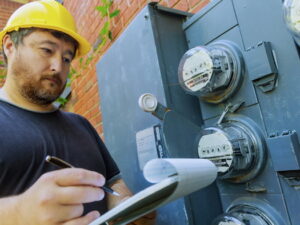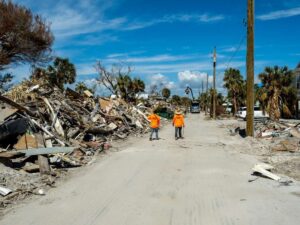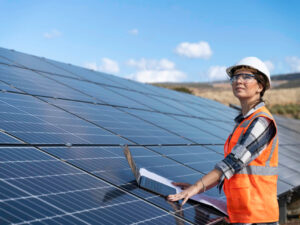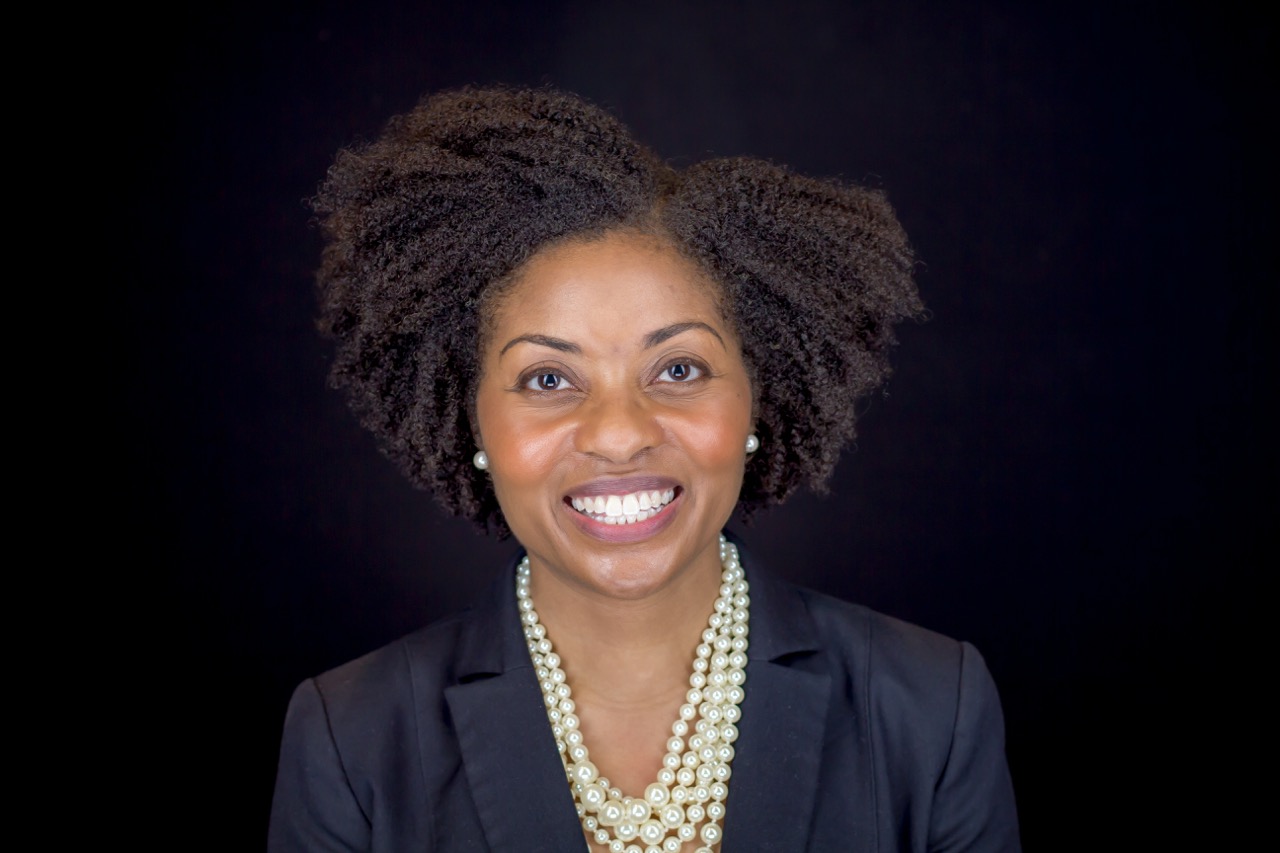
Dr. Natasha DeJarnett
In this episode of Citizens’ Climate Radio, host Peterson Toscano considers stories that focus on the impacts of climate change. These include incidents of extreme weather and stories of changes you have witnessed over time and the ways these changes affect you and everything and everyone you love. This episode will give viewers the opportunity to tell effective climate stories.
Plus, you will hear one climate solution story from the future. Most importantly, you will hear an example of “the climate story pivot.” The pivot happens when you jump off of your story into the climate solution you are proposing.
An extreme weather story by Dr. Natasha DeJarnett
Dr. DeJarnett is an assistant professor at the Christina Lee Brown Environment Institute at the University of Louisville Division of Environmental Medicine. She researches the health impacts of extreme heat exposure and environmental health disparities. If you have ever heard one of Dr. DeJarnett’s presentations, you know she is excellent at sharing data and highlighting the many ways we can protect our loved ones and communities. She is also a powerful storyteller. For this episode, she tells us a dramatic story about the impact of extreme weather in her own life when she was 12 years old.
The most common climate change story is the climate change impact story, which reveals the dangers of climate change-induced extreme weather and other impacts on our lives and the world. It’s important to make your story compelling with specific details and emotions. Once you tell your story, pivot to the climate solution. This is when you connect your story to the climate work you are doing or a particular solution you are pursuing.
Finally, give your audience something to do — suggest a meaningful and achievable next step.
Next month we will do a deep dive into another type of climate change story — a story that reveals the impacts of climate change solutions.
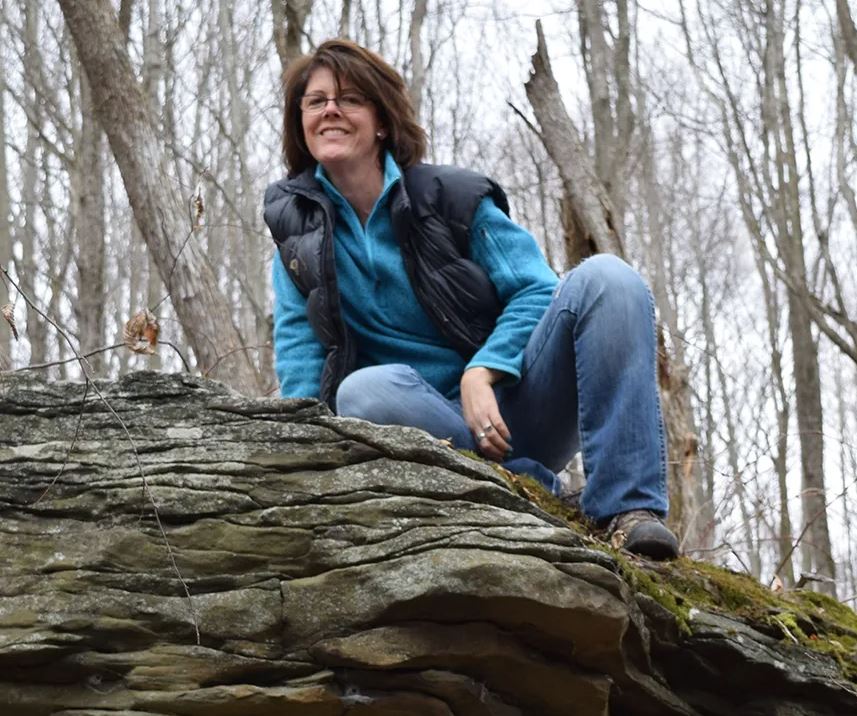
Lilace Mellin Guinard
Poems about parenting and climate change by Lilace Mellin Guinard
As a parent, Lilace Mellin Guinard weaves in emotions that may be familiar to some listeners. Lilace led a poetry workshop for climate change leaders at The BTS Center in Portland, Maine. She recorded readings of her poetry, and Citizens’ Climate Radio host Peterson Toscano adds music and sound effects here. In this episode, you will hear Lilace read two poems, “After the Magi Depart” and “Evergreen.” For people in North America who enjoy winter weather and feel a pang of sadness about the warming of winter, Lilace expresses both grief and determination. Each poem is a mini-story of moments in the life of a parent and children. More importantly, Lilace tells the deeper emotional stories many of us quietly experience.
A story from the future by Allison Whitaker
Also in this episode, Peterson collaborates with Allison Whitaker, one of the facilitators of the Intro to Climate Fiction Workshop offered by With Many Roots. She wrote a story immersed in finding a solution. Together they created a radio drama version of her story, “Forest at the End of the Lane.” This story is inspired by a climate solution known as tree intercropping. According to Project Drawdown, tree intercropping is “a suite of agroforestry systems that deliberately grow trees together with annual crops in a given area at the same time. This solution replaces conventional annual crop production on degraded cropland.” Special thanks to The Wildlife Conservation Research Unit for the awesome badger sounds heard here. You can read more future solution stories like Allisons’ over at the Cli-Fi Imaginarium.
Want to learn more about climate storytelling and get some group experience?
Join Peterson for a free online storytelling workshop on Jan. 17, 2023 at 8:00 p.m. ET. He will share activities and insights, and give feedback to participants about their stories. You will walk away with fresh inspiration in telling your compelling climate stories. Click here to register for the training.
Resilience Corner
Tamara Staton is the Education and Resilience Coordinator for Citizens Climate Education. In this installment of the Resilience Corner, she has us accepting what we need.
There are two aspects of acceptance that can help us deepen our resilience.
- The first one involves making space and allowing room for our thoughts, feelings, and needs. When it comes right down to it, what you need is what you need.
- The second part of acceptance involves a willingness to see our surroundings and circumstances exactly as they are in the moment. Acceptance in this way, free from judgment, allows us to focus our energy and attention on what matters most
Next month Tamara will take a closer look at asking for help. Get more tips and resources by visiting The Resiliency Hub.
Volunteer today and see all the ways you can help
Good News Report
Our good news story comes from Brad Johnson and John Price Kepner from Hill Heat. In addition to voting on candidates during the U.S. midterm elections, voters also weighed in on climate change-related ballot measures. This meant that there were many election success nationwide. Learn more at Hill Heat.
If you have Good News to share, email radio @ citizensclimate.org
We always welcome your thoughts, questions, suggestions, and recommendations for the show. Leave a message on our listener voicemail line: (619) 512-9646. +1 if calling from outside of the U.S.
If you are a woman who has spent time alone camping, hiking, or in nature, I’d like to hear from you. What was that experience like? What insights and advice do you have for women who want to explore natural places alone? Leave a message on the voicemail line or email Peterson.
We always welcome your thoughts, questions, suggestions, and recommendations for the show. Leave a voicemail at (518) 595-9414 (+1 if calling from outside the USA). You can email your answers to radio@citizensclimate.org.
You can listen to Citizens’ Climate Radio on these platforms:
Also, feel free to connect with other listeners, suggest program ideas, and respond to programs in the Citizens’ Climate Radio Facebook group or on Twitter at @CitizensCRadio.
Citizens’ Climate Radio is a monthly podcast hosted by CCL volunteer Peterson Toscano.

